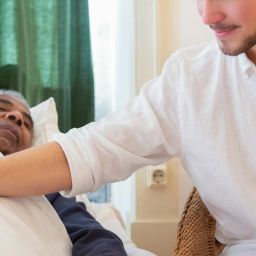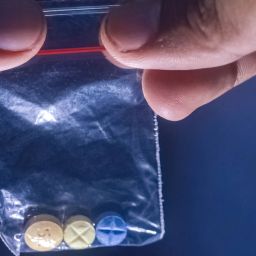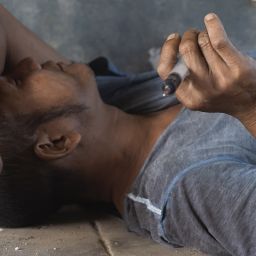Baltimore, a city rich in history and culture, is also a city that faces its fair share of challenges, including addiction, mental health disorders, and behavioral health issues. If you or someone you know is struggling with these issues, understanding the available rehabilitation services in Baltimore is crucial. This comprehensive guide will walk you through the process of accessing these services and provide essential information to aid your journey to recovery.
Recognizing the Significance of Rehabilitation in Baltimore
Rehabilitation plays a critical role in helping individuals rebuild their lives by addressing challenges such as addiction, mental health disorders, and behavioral issues. This comprehensive process combines therapies, counseling, and support programs aimed at uncovering and resolving the underlying causes of these struggles, fostering long-term recovery. In Baltimore, where access to effective rehabilitation can transform lives, these services also contribute to reducing societal issues like homelessness and crime. Beyond personal healing, rehabilitation strengthens communities by promoting healthier, more productive lifestyles for individuals and their families.
Why is Rehabilitation Important?
- Physical Health: Addiction and mental health disorders can significantly impact physical health. Rehabilitation programs help individuals recover from the physical damage caused by substance abuse and other harmful behaviors.
- Mental Health: Rehabilitation addresses the underlying mental health issues that often contribute to addiction and behavioral problems.
- Social and Emotional Well-being: Rehabilitation programs provide a supportive environment where individuals can develop healthy coping mechanisms, improve their relationships, and enhance their overall quality of life.
- Reduced Risk of Relapse: By addressing the root causes of addiction and mental health disorders, rehabilitation programs help individuals reduce their risk of relapse and maintain long-term sobriety.
Identifying Your Needs and Finding the Right Rehabilitation Center
The first step in accessing rehabilitation services in Baltimore is to identify your specific needs. Consider the following factors:
- Type of Addiction: Are you struggling with alcohol, drugs, or a specific substance?
- Mental Health Conditions: Do you have any co-occurring mental health disorders, such as depression, anxiety, or bipolar disorder?
- Severity of Addiction: How severe is your addiction, and what level of care do you require?
- Personal Preferences: What type of treatment setting do you prefer, such as inpatient or outpatient?
Once you have a clear understanding of your needs, you can start researching rehabilitation centers in Baltimore.
Types of Rehabilitation Services in Baltimore
Baltimore offers a wide range of rehabilitation services to cater to diverse needs. Some of the most common types of rehabilitation services include:
- Inpatient Rehabilitation: Inpatient rehabilitation programs offer round-the-clock care within a residential environment. They are particularly well-suited for individuals who need comprehensive, structured treatment and constant support to aid their recovery.
- Outpatient Rehabilitation: Outpatient programs allow individuals to continue their daily activities while receiving treatment. These programs are suitable for individuals who are stable and can manage their recovery with less intensive support.
- Partial Hospitalization Programs (PHPs): PHPs offer a blend of inpatient and outpatient care, providing a structured daily schedule with therapy sessions and support groups.
- Intensive Outpatient Programs (IOPs): IOPs are more intensive than traditional outpatient programs, requiring multiple hours of therapy per week.
Factors to Consider When Choosing a Rehabilitation Center
When selecting a rehabilitation center in Baltimore, considering some key factors are essential to ensure that the chosen facility can effectively meet your unique needs and support your recovery journey. A thoughtful choice increases the likelihood of receiving comprehensive care that addresses not just immediate challenges but also long-term recovery goals. Additionally, evaluating these factors helps build confidence in the treatment process, fostering trust and commitment to achieving lasting wellness.
- Accreditation: Look for centers accredited by reputable organizations such as the Joint Commission.
- Licensed Professionals: Ensure that the center employs qualified and experienced therapists, counselors, and medical staff.
- Treatment Programs: The center should offer a comprehensive range of evidence-based treatment modalities, including individual therapy, group therapy, family therapy, and medication-assisted treatment.
- Support Services: Consider the availability of additional support services, such as aftercare planning, job placement assistance, and housing support.
- Cost: Evaluate the cost of the program and explore insurance coverage options.
Navigating the Insurance Process
Understanding your insurance coverage is crucial when accessing rehabilitation services. It ensures that you are aware of the treatments and programs covered under your plan, helping you avoid unexpected expenses. Familiarizing yourself with your policy also allows you to make informed decisions about the rehabilitation center that aligns with both your needs and your financial situation. Additionally, knowing your insurance benefits can help you maximize available resources, making recovery more accessible and manageable. Here are some tips to navigate the insurance process:
- Contact Your Insurance Provider: Reach out to your insurance provider to determine your coverage for rehabilitation services. Inquire about in-network providers, out-of-network benefits, and any pre-authorization requirements.
- Seek Assistance from the Rehabilitation Center: Many rehabilitation centers have dedicated staff to help patients navigate the insurance process. They can assist with verifying benefits, filing claims, and appealing denials.
- Explore Financial Assistance Options: If insurance coverage is limited, consider exploring financial assistance options, such as grants, scholarships, and government programs.
The Role of Community Support in Recovery
Community support plays a vital role in the recovery process. It provides individuals with a sense of belonging and encouragement, which can significantly boost motivation and resilience. Through shared experiences and collective understanding, community support fosters accountability and helps individuals navigate challenges more effectively. Here are some ways to access community support in Baltimore:
- Support Groups: Attend 12-step meetings or other support groups to connect with people who understand what you’re going through.
- Community Organizations: Seek out local organizations that offer support services, such as counseling, job training, and housing assistance.
- Volunteer Work: Engaging in volunteer work can be a rewarding way to give back to the community and boost your self-esteem.
- Healthy Relationships: Build meaningful and supportive connections with family members, friends, and loved ones. Building strong relationships provides a foundation of encouragement and stability during challenging times.
A Step-by-Step Guide to Accessing Rehabilitation Services in Baltimore
Step 1: Self-Assessment and Seeking Help
- Recognize the Need: The first step is to acknowledge that you or someone you know needs help.
- Seek Professional Help: Consult with a doctor, therapist, or counselor to discuss your concerns and receive a professional evaluation.
- Research Rehabilitation Options: Explore different rehabilitation centers in Baltimore and their treatment programs.
Step 2: Contacting a Rehabilitation Center
- Initial Contact: Reach out to the rehabilitation center of your choice to inquire about their services and admission process.
- Insurance Verification: Provide your insurance information to the center so they can verify your coverage and estimate the cost of treatment.
- Intake Process: Complete the intake process, which may involve filling out paperwork, providing medical records, and undergoing a clinical assessment.
Step 3: Admission and Treatment
- Admission: Once your insurance is verified and the intake process is complete, you can be admitted to the rehabilitation program.
- Treatment Plan: Develop a personalized treatment plan with your therapist, outlining your goals and the specific therapies and interventions you will receive.
- Therapy Sessions: Participate actively in individual, group, and family therapy sessions.
- Support Groups: Attend support group meetings to connect with other individuals in recovery.
- Medication-Assisted Treatment (if necessary): If prescribed, take medication as directed to manage withdrawal symptoms and cravings.
Step 4: Aftercare Planning
- Transition Planning: Work with your therapist to develop a comprehensive aftercare plan, including strategies for maintaining sobriety and managing stress.
- Support Network: Identify and build a strong support network of family, friends, and support group members.
- Continued Therapy: Consider ongoing therapy or counseling to address any lingering issues and prevent relapse.
Overcoming Obstacles and Achieving Long-Term Recovery
The road to recovery is not always easy. It may involve setbacks and challenges. However, with the right support and perseverance, it is possible to overcome these obstacles and achieve long-term recovery.
Common Obstacles:
- Financial Constraints: The cost of rehabilitation can be a significant barrier for many individuals.
- Stigma: The stigma associated with addiction and mental health disorders can hinder people from seeking help.
- Relapse: Relapse is a common challenge, but it is important to remember that it is not a failure.
Strategies for Overcoming Obstacles:
- Seek Support: Reach out to family, friends, support groups, and mental health professionals for support and guidance.
- Develop Coping Mechanisms: Learn healthy coping mechanisms to manage stress, triggers, and cravings.
- Practice Self-Care: Make self-care a priority by engaging in activities like exercise, meditation, and spending time outdoors. These practices help to reduce stress, improve mental clarity, and promote overall well-being.
- Stay Connected: Maintain strong relationships with supportive people in your life.
- Celebrate Milestones: Acknowledge and celebrate your accomplishments, no matter how minor they may appear. Recognizing your progress boosts confidence and motivation, reinforcing your commitment to the journey ahead.
The Importance of Community Support in Baltimore
Baltimore offers a variety of community resources and support groups to help individuals in recovery. One of the key organizations providing excellent rehabilitation services and VIP support in Baltimore is Seventy Times Seven Wellness Mission. This rehab center offers a comprehensive range of services and programs, including addiction recovery, mental health support, behavioral health therapies, ex-offender reentry programs, and nurse case management. By connecting with 70×7 Wellness Mission, individuals can access counseling, support groups, and educational resources tailored to their unique needs, empowering them to rebuild their lives and achieve lasting wellness.
Seeking Professional Help?
If you need assistance with mental health, behavioral health, and addiction treatment etc., don’t hesitate to reach out to us. Our team is here to provide guidance, support, and the resources you need to move forward. Contact us today to take the next step toward achieving your goals.
Conclusion
Getting access to rehabilitation services in Baltimore is an essential first step toward overcoming personal challenges and starting the path to recovery. By identifying your specific needs, selecting a rehabilitation center that aligns with those requirements, and utilizing the wealth of community support available, you can take meaningful steps toward healing and personal growth. Recovery is not just a one-time event but an ongoing journey, requiring commitment and resilience. With the right resources and a strong support system, achieving a sober, fulfilling, and purpose-driven life is not only possible but well within reach.
















